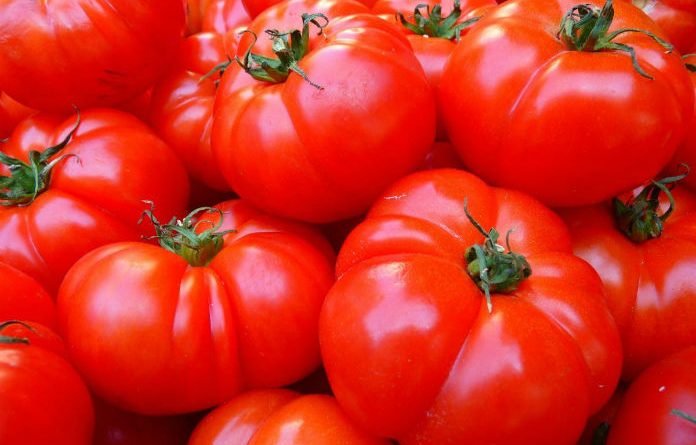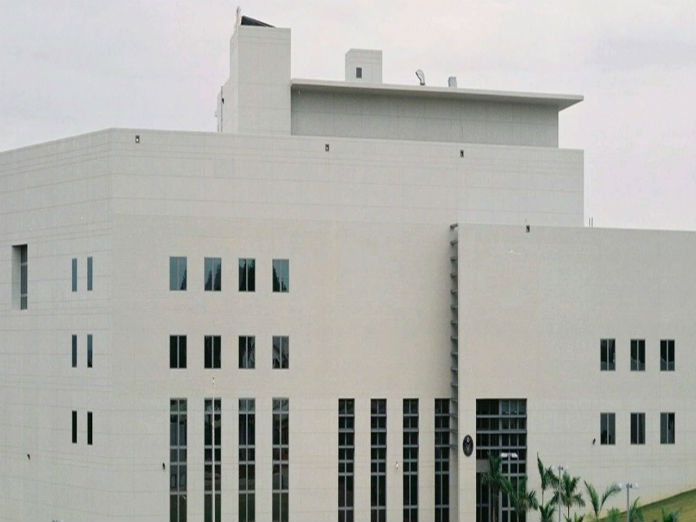After Rice Boom, CBN Revival of Tomato, Textile Sectors Yielding Result
After the rice boom that has seen many homes ditching expensive imported rice for home grown local rice consequently saving the country huge foreign exchange, the President Muhammadu Buhari administration’
CBN Governor, Mr. Godwin Emefiele, announced this while explaining a multifaceted commodity approach adopted by the bank in its landmark agricultural intervention programmes. He said the scheme, particularly in the areas of tomato and cotton farming, had yielded positive outcomes for the growth of the economy. That is in addition to unprecedented revolution in local rice production, he stated.
Some of the hitherto moribund cotton and textile factories, particularly, in the northern part of the country, have reportedly been brought back to function.
Today, there is strong evidence that some of the hitherto moribund cotton and textile factories are back to life and creating employment for Nigerians. A number of companies have been resuscitated, including Nasara Agro Ginnery, located along Biu road, Gombe State, where there had been significant activities in processing of cottonseeds. Activities have also peaked at Arewa Cotton Limited, where the ginning process is currently in high gear.
Tomato is among the 10 items, which Emefiele wants to boost under a five-year policy thrust (2019-2024), meant to enhance productivity through the provision of improved seedlings as well as access to finance, especially for rural farmers.
The CBN had in June 2015 excluded importers of 41 goods and services from accessing foreign exchange at the Nigerian foreign exchange markets in order to encourage local production of the items. The list was later increased to 44 with the addition of textile, tomato, and palm oil.
The move was aimed at sustaining foreign exchange market stability and ensuring the efficient utilisation of foreign exchange as well as ensuring that optimum benefit is derived from goods and services imported into the country.
Emefiele believes the bank’s on-going interventions, especially in agriculture, will “help to boost not only our domestic outputs but also improve our annual non-oil exports receipts from $2 billion in 2018 to $12 billion by 2023.”
The CBN governor had in August last year disclosed the decision to place a blanket ban on the importation of tomato products into the country by 2021. He expressed optimism that the country will soon achieve self-sufficienc
Speaking recently at the ground-breaking
According to him, the commodity champion model introduced in the first quarter of 2019, to stimulate production of tomato and strengthen the end-to-end linkages in the value chain from input supplies to the final consumer, had begun to yield results with the mobilisation and validation of about 140,848 farmers from various tomato farmers associations across 25 states of the federation.
Noting that tomato represented an important commodity, being one of the main ingredients in hundreds of Nigerian and international dishes as well as the beverage and pharmaceutical industries, he said its annual production in the country was estimated at 1.701 million tonnes while annual consumption stood at 2.93 million tonnes. This leaves an annual supply shortfall of over 1.2 million tonnes valued at $2.5 billion annually, which is met through importation and smuggling.
The CBN governor said the Tomato Jos plant, which is owned by a US investor, Mira Mehta, was “one of the key projects we are supporting in the tomato value chain and the reality of today’s event is an attestation to the objectives of the administration of Mallam Nasiru El-Rufai, the people-oriented
Emefiele commended Buhari for his continued support of the apex bank’s efforts towards economic diversification
Mehta described Tomato Jos as a leading agricultural company operating a world-class commercial farm, adding that it has helped smallholder farmers transform from subsistence to commercial growers who specialise in growing maize, soya beans, and tomatoes.
Meanwhile, in yet another success story for the CBN, last year it inaugurated a separate tomato processing plant, Gino Tomato, in Kaduna. The company rented about 100 hectares, with about 30 hectares mapped out as farm area, 16 hectares of which had been cultivated.
The various interventions support CBN’s vision of the country becoming self-sufficient




